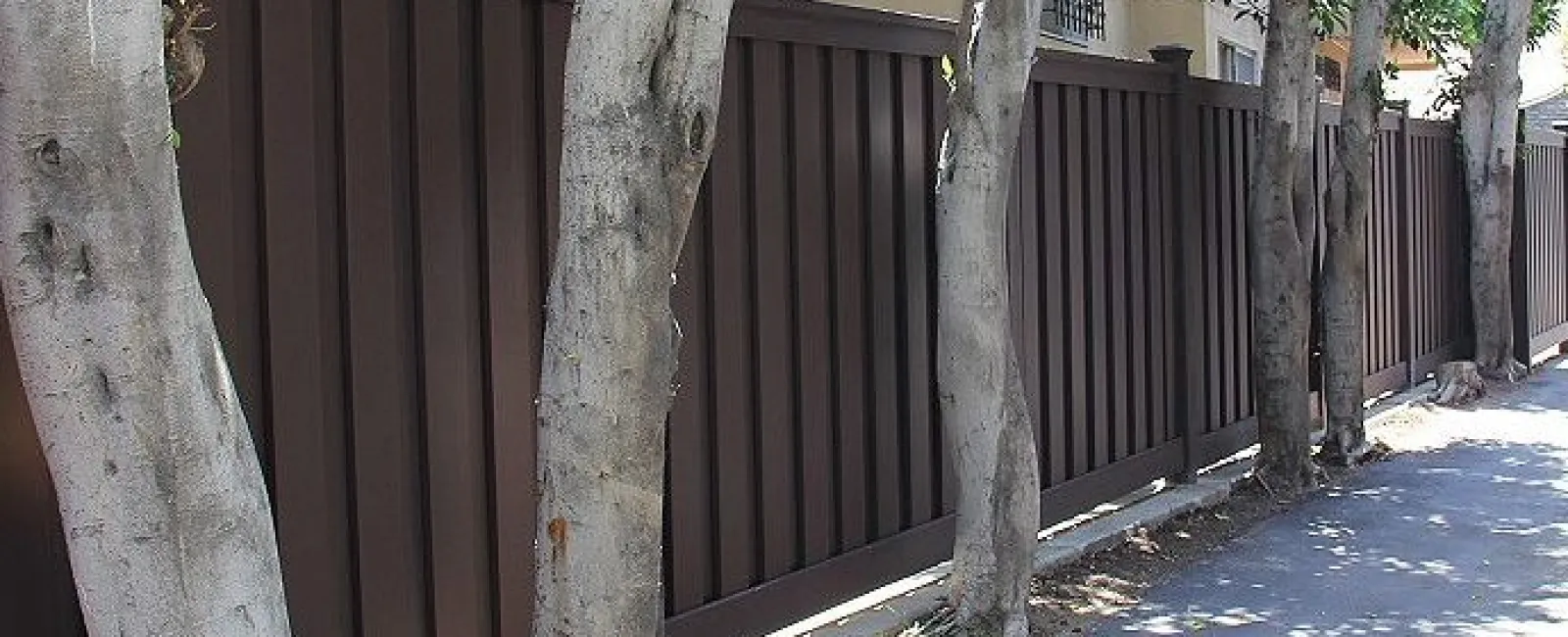With a global push toward environmental consciousness, many modern industries are looking for green solutions. Fencing is included. The main purposes of any fence include security, privacy, and curb appeal. However, you choice of fencing material can make a difference in terms of sustainability. Composite fencing is an excellent, long-lasting option that's friendly to the environment. We'll take a look at composite fencing and how it can benefit both you and your surroundings.
What is Composite Fencing?
Composite means something made up of various elements. In the case of composite fencing, those elements include a blend of up to 96% recycled wood fibers and plastic. This unique combination offers the beauty of wood and the durability of synthetic materials. The manufacturing process ensures that composite fencing resists rot, warping, and insect damage. These qualities are particularly important in a humid climate like Atlanta's. Increasingly popular with both commercial and residential property owners, composite is a sturdy and long-lasting alternative to traditional wood fencing.
Why You Should Consider Composite Fencing
Choosing the right fence material for your project depends on your goals, your design style, and your budget. Composite fencing offers a number of significant benefits that warrant consideration:
Low Maintenance
One of the most common concerns when choosing a fencing material is how much effort it takes to maintain. In this regard, composite fencing is superior. Unlike wood, it doesn't require painting, staining or sealing to maintain its good condition. It also doesn't splinter, so you can brush against it without worry. This is particularly beneficial around pools, playgrounds, or other areas that may involve frequent activity. It is also resistant to moisture, mold, and mildew, eliminating the need for frequent cleaning. A simple occasional wash with soap and water is all it takes to keep your composite fence looking fresh and clean.
Tip: Never power wash your composite fence. Not only isn't it necessary, but it may damage the surface and void any warranty.
Long Lifespan
Another common concern is how long a fence will last. This is understandable, because a new fence can be a significant investment. Due to its "best of both worlds" composition, a composite fence is built to stand the test of time. It won't crack under the hot southern sun and won't warp in our humid
conditions. It also resists rot and pests like termites, meaning you won't have to regularly replace damaged or rotten boards. You can enjoy a sturdy fence for years to come, without the constant upkeep.
Environmentally Friendly
If you're looking for new ways to reduce, reuse and recycle, composite is a great option. Because these fences are made up of up to 96% recycled materials, they help reduce demand for both new timber and new plastic. They also last longer than wood or PVC/vinyl fences, further reducing demand. A Trex fence, for example, can last up to 30 years or more when properly cared for. Because composite fences don't require painting, staining, or pesticide treatments, they won't leach harmful chemicals into the surrounding soil. That means fewer toxins and contaminants in our waterways and ecosystem. By choosing a composite fence, you'll help contribute to a greener environment.
Design Versatility
Many modern composite fences are almost impossible to distinguish from their traditional wood counterparts. Similar to wood, they're available in a wide rage of style options that will complement your home's architecture. They also come in a variety of colors to suit your personal taste. Whether you prefer a classic or contemporary aesthetic, there's a composite fence to suit your needs. Choose from an array of finishes, textures, and shades, all of which resemble the natural beauty of wood. Additionally, composite fences are available in different heights, which allows you to customize your fence according to your security and privacy requirements.
Better Wind Resistance
In high winds, a fence can sustain significant damage. However, composite fences such as Trex will withstand wind gusts of up to 130 mph. The interlocking picket design helps ensure strength and structural integrity, even in hazardous weather conditions. This helps reduce additional property damage from loose boards or rails that can break and fly off in severe storms.


Installing Composite Fencing is as Easy as 1,2,3…
Another great benefit of composite fencing is how simple it is to install. Many capable DIYers can handle the installation process even without relevant fencing experience. That's because the posts and pre-formed panels are designed to make the process easy. The manufacturer usually offers detailed instructions for those who like to do things themselves.
However, if you want to make sure that your new composite fencing gets installed correctly, it's always a good idea to consult a fencing professional. From establishing the proper legal boundaries to setting posts and running string lines to making sure the gates are level, experience counts.
Tip: If you do plan to install your fence yourself, be sure to check with your HOA and city/county building codes. Some areas require permits and have rules about the style and height of fence you can install.
If you're looking for a fencing professional, contact First Fence of Georgia today. We've been the Atlanta area's trusted fencing partner since 2004.


